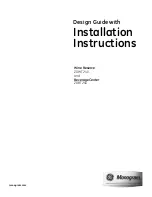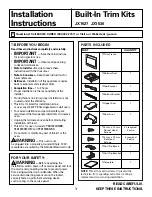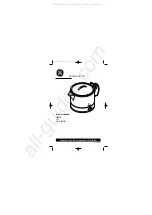
4
CHAP. 5 - MACHINE USE
page 19
5.1
- OPERATIONAL CHECK
5.2
- LOADING AND CUTTING THE PRODUCT
5.3
- SHARPENING THE BLADE
CHAP. 6 - ROUTINE CLEANING
page 22
6.1
- GENERALITIES
6.2
- CLEANING THE MACHINE
6.2.1 - Cleaning the goods holder plate
6.2.2 - Cleaning the blade, the bladeguard and the ring
6.2.3 - Cleaning the sliceguard
6.2.4 - Cleaning the sharpener
6.3
- SLIDE GUIDES LUBRICATION
CHAP. 7 - MAINTENANCE
page 25
7.1
- GENERALITIES
7.2
- BELT
7.3
- FEET
7.4
- FEEDING CABLE
7.5
- BLADE
7.6
- GRINDERS
7.7
- SLIDE GUIDES LUBRICATION
7.8
- PUSH-BUTTON PANEL LABEL
CHAP. 8 - DISMANTLING
page 26
8.1
- PUTTING OUT OF SERVICE
8.2
- WEEE Waste of Electric and Electronic Equipment
25
CHAP. 7 - MAINTENANCE
7.1 - GENERALITIES
Before carrying out any maintenance operations it is necessary to:
a) disconnect the feed plug from the electrical network to completely isolate
machine from the rest of the system.
b) bring the graduated handgrip which regulates the thickness gauge to “0”.
7.2 - BELT
The belt does not need to regulated. Generally after 3/4 years it must be
replaced, in this case call the “SERVICE CENTER”.
7.3 - FEET
The feet could deteriorate in time and lose their elasticity, therefore decreasing
the stability of the machine. Replace them by calling the “SERVICE CENTER”.
7.4 - FEEDING CABLE
Periodically check the state of wear and tear of the cable and call the “SERVICE
CENTER” for its replacement.
7.5 - BLADE
Check that the diameter of the blade, after many sharpenings, has not been
reduced more than 10 mm. compared to the original diameter. For its
replacement call the “SERVICE CENTER”.
7.6 - GRINDERS
Check that the grinders continue to have their abrasive property during the
sharpening. When they are no longer abrasive they must be replaced as to not
damage the blade, therefore call the “SERVICE CENTER”.
7.7 - SLIDING GUIDES LUBRICATION
Occasionally put a few drops of oil (from the tube that is provided) on the round
bar that the trolley slides back and forth on, through the hole (OIL) located on the
side of the graduated handgrip.
7.8 - PUSH-BUTTON PANEL LABEL
The push-button panel label can be marked and/or punctured with time. In such
a case call the “SERVICE CENTER” to replace it.
Summary of Contents for SSG300PTB
Page 2: ...2 27 ...
































